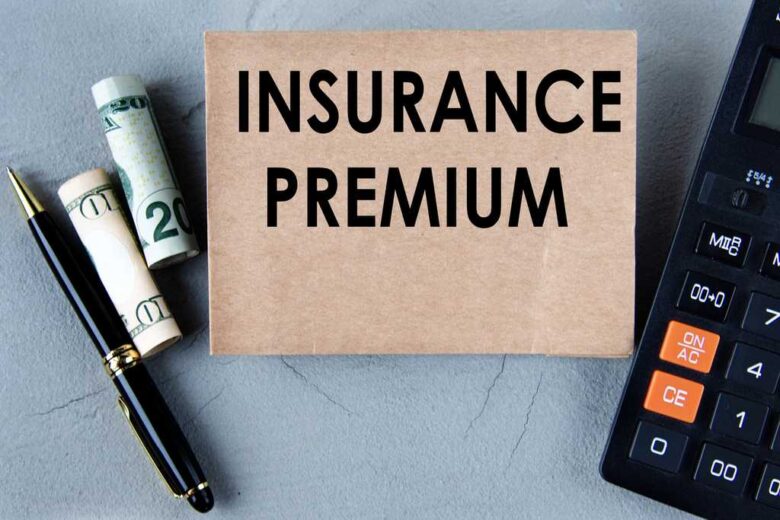Among all the costs incurred in possession of a vehicle, insurance stands out as one of the recurring expenses. Comprehending the factors within your insurance premiums might be similar to finding your way through a maze. Is it normal for some drivers to spend more than others on premiums? Why does this happen? For every driver, whether a professional or a novice, it is important to understand the factors that contribute to the cost of insurance premiums in order to avoid overspending. This is a 1363 straightforward traditional thesis. Therefore, let us explore the aspects that affect the amount of insurance coverage you will purchase and how you can bring that amount of supplement price down. A happy hour is certainly in order!
Factors That Affect Insurance Premiums:
There are many outbreak factors that need to be considered in determining the insurance premiums of any vehicle. These features can put most of your risk to a lower level. It seems like the age and gender curves have become worse here. Young people seem to yield to the risk index with higher rates since they have fewer chances to drive safely. Moreover, studies have shown that males usually record bad statistics when it comes to driving compared to females.
The driving history is next, the main focus of this section is something few people may focus on, however, it is critical in understanding how the data impacts premium rates. Clean driving acts and driving records are positive and could contribute to lower rates. On the other hand, if a person has a number of claims, this could drive up the costs considerably. Also, the limits of the coverage you pick also affect your costs quite immensely. Selective policies provide the most benefits to the policyholder, that is to say the cost to the policyholder package is higher. Avoiding spine insurance coverage options causes a decrease.
Age and Gender
The age and gender of a person are basic determinants in the calculation of insurance premiums. These demographics are scrutinized so as to determine the risk that the group of drivers presents. Young drivers usually find themselves high up on the tariffs, whose rate is around twenty-five or much lower. Such drivers do not have a lot of experience, which implicates such a circumstance.
In the contrary, age adds experience when it comes to time spent on the wheels. At the late twenties and thirties, drivers aged over twenty cut low premiums as a result of good driving history. Premiums also depends on one’s sex. Comparatively, younger males are more accident-prone than their female counterparts in the same age demographic. This causes a situation whereby male drivers pay much more than female drivers. These factors emphasize how individual attributes can be determinants of the separate cost of your insurance.
Driving Record
Your driving record is one of the factors that determines your insurance premiums. Insurance companies put more weight to this history in order to take risk. good driving record brings in better rates, while involving in accidents or breaking the law will expect costs on the higher side.
In case you have more than one accident or have several accidents of even minor nature, insurers may brand your case profiling as high-risk drivers; this perception will remain on the books for several years and may other perceptions of what some factors will affect the premium payment documents state. If you have speeding tickets or DUIs, those are more troubles for an insurance company. It’s code of conduct, which will start trying to drape themselves in the sand.
Coverage
The type of insurance coverage that you select is also a vital component in the calculation of the insurance premium that you may be subjected to. Various policies are often offered to suit many persons with different needs and abilities.
For example, in this case, the most extensive cover more often than not incurs more costs than an ordinary liability cover. This is due to the fact that it shields the person from more losses, for example, theft or damage by hurricanes. If you want to feel well covered, you should be ready to cough up more cash.
Conversely, selecting the minimum coverage can reduce your expenses but can expose you to a lot if anything happens in the course of an accident. It is vital to understand what degree of risk he or she possesses as a result of this. Moreover, other categories of vehicles could also attract only some types of coverage, which may also affect the rates. For instance, luxury vehicles tend to call for the paying of higher premiums on their insurances due to the cost of the vehicle and repairs.
Credit Score
Who doesn’t understand the deep impact of a credit score? A credit score is one of the determinants of the price of one’s insurance’s premium. In the eyes of insurers, it is often seen as a measure of risk. It is assumed that a person with a higher score has greater control over their finances and thus will enjoy low rates.
Insurance firms study a person’s credit scores to evaluate the extent to which he or she will make insurance claims. Members of society who are ranked poorly on their credit score will experience an increase in premiums. This is because they are seen to make many risky choices, such as filing several claims. On the other hand, a good credit history has the opposite effect and enables one to enjoy better premium rates and discounts. It has an effect not only on borrowing but also on being an overall trustworthy individual.
How Do These Factors Affect Your Premiums?
Every factor affecting your insurance premiums has its own importance in that it contributes towards the final cost that you incur. Age and gender are most of the times crucial. Example: young drivers, mostly men, can find themselves in higher prices because of risk assessment. Another significant aspect is your driving record. Being involved in accidents or committing motor vehicle offenses is viewed as a risk, and this prompts insurance companies to increase the rates.
Selecting a particular kind or extent of coverage will also cause variations in prices. Choosing to have more comprehensive plans or further riders generally incurs more premiums than just having basic cover with liabilities. Your credit score cannot be overlooked. It is an asset to insurance providers as far as giving premium assistance is concerned. A poor score has its challenges, as it could lead to high premiums as the providers are at high risk. Each aspect intertwines with others, as it is important in understanding when looking for affordable insurance solutions.
Tips for Lowering Your Insurance Premiums:
It Pays to Hone One’s Skills The first and most important step in the process involves improving an individual’s driving record. Safe driving practices not only ensure protection of oneself and other road users; it also promote the earning of discounts. Certain traffic violations and accidents can elevate your premiums to an astonishing level; hence, seek to remain free of any accidents. Such a method can also be hard comparison shopping.
Another useful strategy is attaching all policies under one cover. In case of a household policy, consider placing an And auto with the same insurer. An arrangement of this nature most often than not is in the order of magnitude lower than insuring each policy separately. Do not forget other forms of discounts that are available depending on certain Affiliation or memberships. Some companies would offer to lower the prices for healthcare organizations.
Improving Your Driving Record
Improving your driving record is another way to realize these goals and lower the insurance premiums. This is because insurance companies look at how good or bad a driver you have been on record to come up with rates. Safe driving is the best practice to start with. Limit yourself from overtraining, risky acts and activities such as texting while driving. Each one of them could warrant the addition of extra charges with respect to the cover.
Don’t forget to add defensive driving courses in the list of compulsory measures. These programs not only enhance your capabilities, but you might also get some insurance benefits depending on certain policies. Assume the position you have to maintain at all times. Go to the trouble of revisiting your driving record for any inaccuracies that could lead to undesired premiums.
Buying Bundles of Different Policies
It is wise for many insurance customers to bundle policies while purchasing insurance coverage. Performing multiple policy purchases, such as auto with home insurance, generally leads to great discounts. As such, most insurance companies will also reward this practice through some discounts. This also makes it easier for you to manage your money—one premium instead of several bills.
In addition, everything will be simply simpler, including submitting claims with all policies having one insurer. There is only one person you should talk to when you require assistance, which enhances the overall efficiency when the time for help comes. Find out if your current insurer offers bundling options to their clients. In the absence of this, switching providers may yield greater deals and more frequent promotional add-ons to assist one. On the other hand, always check the details of any contract before signing it. Make sure that there will be no crucial elements of the coverage excluded, even if the policy is bundled.
Conclusion:
With knowledge of what factors determine your insurance premiums, you are outstandingly placed to make good choices. Insurance seems to be a hard nut to crack, but with the right information, the problem can be resolved. Every component contributes to how much an individual will incur, whether it be age or credit score. Awareness of these factors has a significant positive effect when it comes to making various decisions regarding the aspects of coverage to take.
-Making changes such as bettering driving habits or utilization of bundled policies will be quite helpful in ordering appropriate policies at lower costs. The preventive measures taken will not only better one’s financial situation but will also offer comforts while driving. However, as it clearly appears, this will be the only universal rule; every situation is unique. The same rule: base the objectives and methods of the action on the particulars of the case.
FAQs:
1. What is an insurance premium, and how much?
An insurance premium is the stipulated amount that somebody pays to obtain any form of insurance. This amount can be remitted on a monthly, quarterly, or yearly basis, depending on the agreement.
2. How does my age affect my premiums?
Young drivers usually attract higher premiums because they are seen to lack’street’ experience. Similarly, older drivers may also have variations depending on their patterns of driving and safety records.
3. Is it possible to save on my premiums by improving my credit profile?
Yes! A lot of other companies will take into account an individual’s credit history in calculating the premiums. Some policies are much cheaper depending on the credit score, as it shows that an individual can handle finances properly.
4. Is combining auto and home insurance policies worth it?
There can be good savings with many providers if people choose to cover more than one policy, say home and auto, for example. This is one of the best ways to save money as well as the hassle of having many policies at once.
5. How often should one get new insurance quotes?
It is advisable that you go through your options at least once a year or whenever there’s a life event such as a move or you’re purchasing a car. This ensures that you get the best offer you are eligible for.




